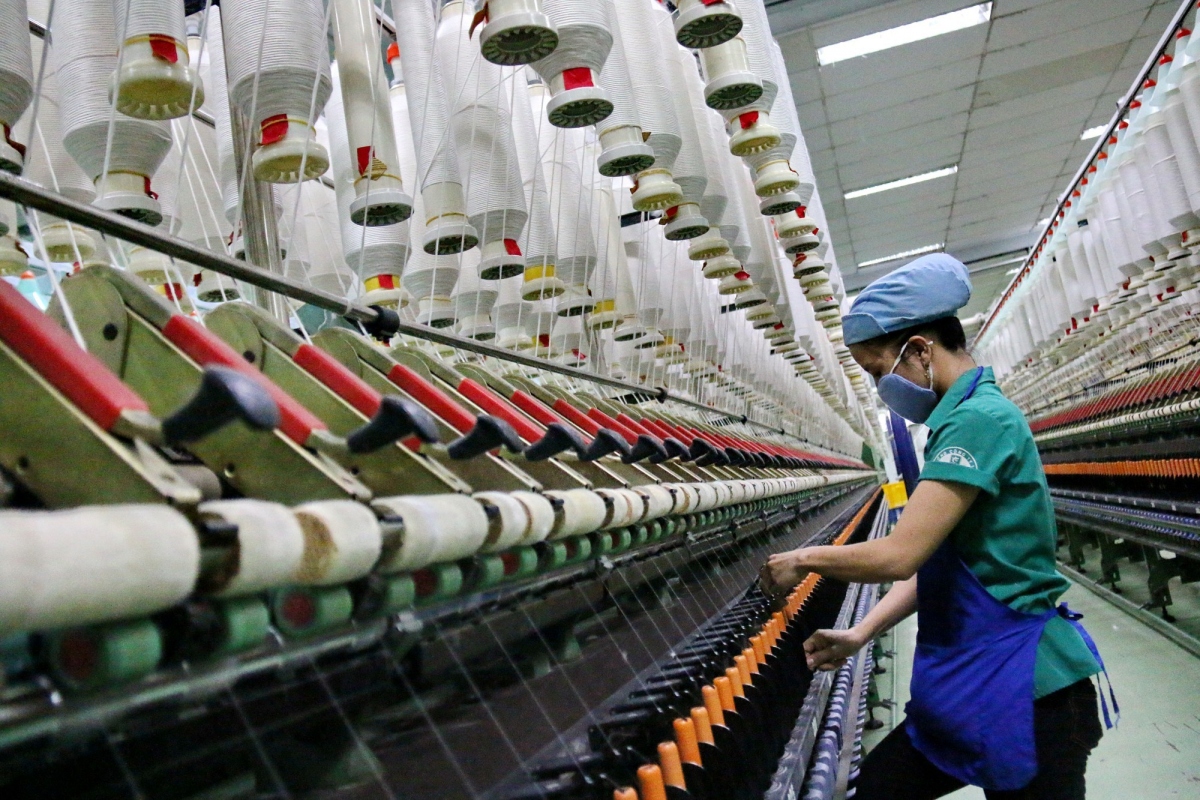Sustainability and circularity a must for Vietnamese textiles
VOV.VN - Sustainability and circularity are an inevitable path which Vietnamese textiles must follow, according to Truong Van Cam, general secretary of the Vietnam Textile and Apparel Association (VITAS).
Speaking at a seminar on "Promoting circularity in Vietnamese textiles" on August 26, Cam said a booming textile industry has become a thing of the past as the sector has shifted its focus from fast growth to sustainable growth. It is anticipated to grow by around 6% from this year to 2030 and achieve circularity between 2030 and 2045.
He also underscored VITAS's PPP (Profit-People-Planet) as a well-suited model in which textile firms can go green. Through this model, firms are required to operate profitably whilst simultaneously improving workers' living conditions and embracing green production.
The general secretary therefore urged textile firms to stay well-informed about circularity to ensure that they do not lag behind on the global green path. He also called on firms to weigh up the costs and benefits of green transition in order to develop the best strategies for themselves, thereby avoiding green-at-all-cost narratives.
Saskia Anders, director of the GIZ Fabric Asia Programme, revealed that the European Commission had passed its strategy for sustainable and circular textiles this year.
In line with this, up to 16 regulations and other policy measures are being planned to make textile products which can enter the European market in a more long-lasting, repairable, reusable, and recyclable way until 2030.
"There is a large interdependence between the first stages of product development and its end-of-life. Hence, the effort needs to be collaborative and the responsibility needs to be shared," she said.
Nguyen The Chinh, former head of the Institute of Strategy and Policy on Natural Resources and Environment, defined the circular economy as an economic model which allows efficient use of materials, longer product life spans, lower production wastes, and less environmental impacts.
He outlined that the Government always puts circularity high on its agenda and aims to encourage the reuse and recycling of production waste. He added that Vietnamese firms could learn from German firms in this regard as they seek to operate more circularly.
"In Germany, many firms reclaim CO2 from their factory emissions to sell it as input to other firms," he said.
Cao Minh Ngoc, director of the RTS Vietnam Technology Solutions and Resources, underlined four factors which are posing a serious threat to water security in the nation, including climate change, rising sea levels, drought, and flooding.

